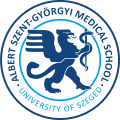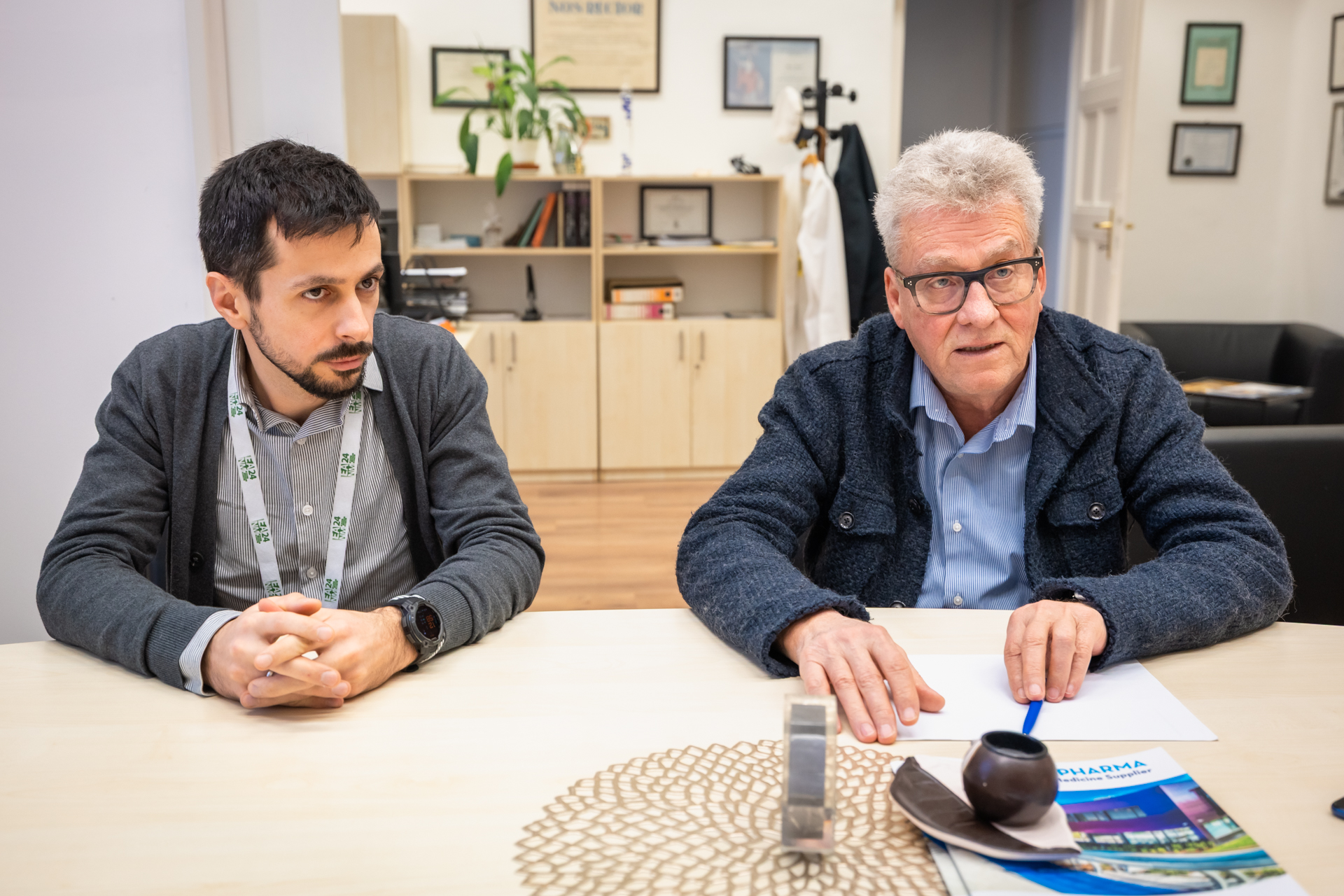University of Szeged
Albert Szent-Györgyi Medical School
Foreign Students' Secretariat
Your Education. Our Mission.

Karikó Katalin exhibition at the University of Szeged
An exhibition demonstrating the studies and scientific achievements of Katalin Karikó, whose discoveries paved the way for the development of mRNA-based vaccines that played a key role in COVID-19 pandemic control, opened at the University of Szeged (SZTE) Study and Information Centre on 8 December. It is the latest collection of the Klebelsberg Library of the University, alongside the illustrious Szent-Györgyi and Klebelsberg collections.
The university librarians have put together an exhibition of unprecedented size, thanks to the almost innumerable news reports on the research and scientific achievements of Katalin Karikó in recent years. Among the relics handed over by Katalin Karikó are her old pencil case, camera, notebooks and university biology notes with her own drawings. Other objects on display include certificates and medals awarded to Katalin Karikó for her achievements in primary and secondary school academic competitions, proving that study circles and academic competitions are a well-established means of discovering and developing talents.
Katalin Karikó, who has won more than 100 scientific awards in the past two years, At the opening of the exhibition she said that she was not particularly inspired by awards as she had not received any for 40 years, but she was still working happily because her experiments were successful. ’I have always been competitive. Even in primary school, I came third in the living world competition as a seventh-grader,’ said Katalin Karikó, one of the best-known and most respected scientists of our time and a former student of the University of Szeged, at the opening of the exhibition called ’Achievements - from Academic Competitions to the Lasker Prize’.

Among other things, the exhibition is valuable because visitors can learn about numerous scientific awards. Most people know of only one (the Nobel prize), but it is not among the ones on display. Katalin Karikó has received the most awards, almost one in three, overseas. She has received awards specifically for women or immigrants, but she has also won the oldest American scientific award, the two-hundred-year-old John Scott Prize, which had previously been received by Marie Curie, Thomas Edison, Nikola Tesla and Guglielmo Marconi.
The QR codes below the photos provide access to photo compilations and information on the university’s website that reveal the previously unknown world of science. The library has also made the Karikó collection available in a virtual form, which is now available in English, German and Hungarian. A French translation is currently being prepared.

Although Katalin Karikó does not have much time for research at the moment, she considers it important to attend awards ceremonies, because the focus of such events is science. At the opening ceremony, she stressed the responsibility of the press as well, saying that journalists should write inspiring articles about researchers and what is happening in the world of science. She said that the epidemic has shown that people can learn terms such as mRNA or PCR test, but they usually do not know about the research that led to the development of the life-saving drugs they take every day and whose merit it is. At the same time, researchers also have a serious responsibility for communicating their results in an understandable way.







